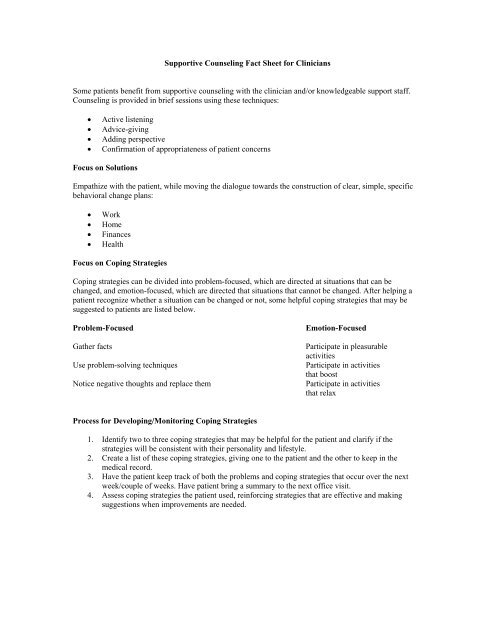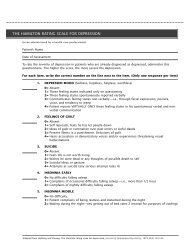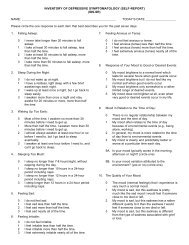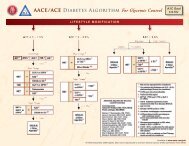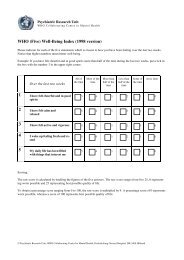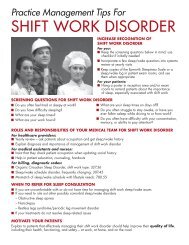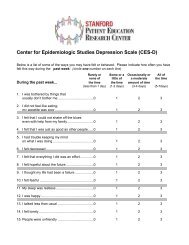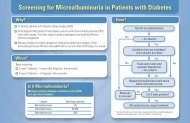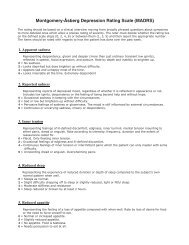Center for Epidemiologic Studies Depression Scale ... - myCME.com
Center for Epidemiologic Studies Depression Scale ... - myCME.com
Center for Epidemiologic Studies Depression Scale ... - myCME.com
You also want an ePaper? Increase the reach of your titles
YUMPU automatically turns print PDFs into web optimized ePapers that Google loves.
Supportive Counseling Fact Sheet <strong>for</strong> Clinicians<br />
Some patients benefit from supportive counseling with the clinician and/or knowledgeable support staff.<br />
Counseling is provided in brief sessions using these techniques:<br />
• Active listening<br />
• Advice-giving<br />
• Adding perspective<br />
• Confirmation of appropriateness of patient concerns<br />
Focus on Solutions<br />
Empathize with the patient, while moving the dialogue towards the construction of clear, simple, specific<br />
behavioral change plans:<br />
• Work<br />
• Home<br />
• Finances<br />
• Health<br />
Focus on Coping Strategies<br />
Coping strategies can be divided into problem-focused, which are directed at situations that can be<br />
changed, and emotion-focused, which are directed that situations that cannot be changed. After helping a<br />
patient recognize whether a situation can be changed or not, some helpful coping strategies that may be<br />
suggested to patients are listed below.<br />
Problem-Focused<br />
Gather facts<br />
Use problem-solving techniques<br />
Notice negative thoughts and replace them<br />
Emotion-Focused<br />
Participate in pleasurable<br />
activities<br />
Participate in activities<br />
that boost<br />
Participate in activities<br />
that relax<br />
Process <strong>for</strong> Developing/Monitoring Coping Strategies<br />
1. Identify two to three coping strategies that may be helpful <strong>for</strong> the patient and clarify if the<br />
strategies will be consistent with their personality and lifestyle.<br />
2. Create a list of these coping strategies, giving one to the patient and the other to keep in the<br />
medical record.<br />
3. Have the patient keep track of both the problems and coping strategies that occur over the next<br />
week/couple of weeks. Have patient bring a summary to the next office visit.<br />
4. Assess coping strategies the patient used, rein<strong>for</strong>cing strategies that are effective and making<br />
suggestions when improvements are needed.


